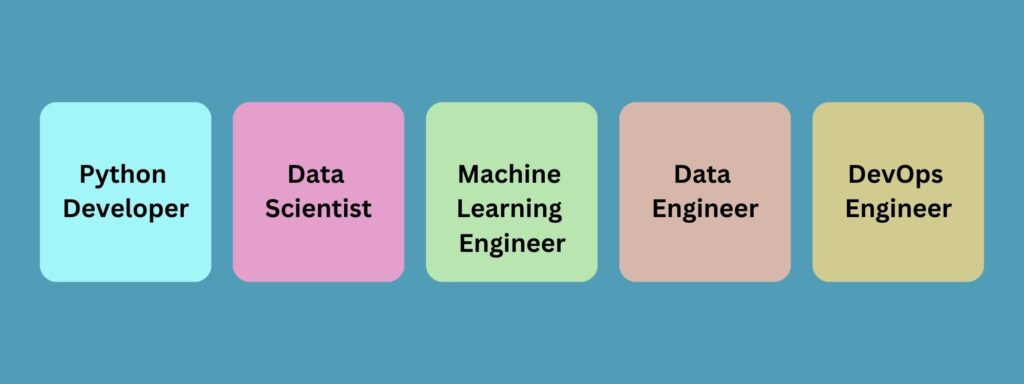Python is a high-level, versatile programming language that is used by developers worldwide for a variety of purposes. It is a general-purpose language that can be used for a variety of tasks, including web development, data analysis, artificial intelligence, machine learning, and more. Python’s popularity has grown over the years, thanks to its simplicity, ease of use, and powerful features. In this blog post, we will discuss why we should learn Python, its uses, and career opportunities.
Likewise, with additional server-side languages like Java and C, Python has been around since it was first created in the late 1980s by Guido Van Rossum. To attempt to make Python simpler to understand and write than other programming languages, Van Rossum modelled it after the English language and removed superfluous syntax.

In the realm of programming languages, few have garnered as much attention and popularity as Python. Known for its simplicity, readability, and versatility, Python has become a driving force behind countless applications, ranging from web development and data analysis to artificial intelligence and automation.
Python has become one of the most popular programming languages in the world and for a good reason.
The following are some reasons why you should learn Python:
- Python, a high-demand programming language
Because of its flexible programming ability, python was used in data analysis, machine learning, web development, artificial intelligence, and many other things. It is widely used in scientific computing, data visualization, and software development.
- Python is in high demand for career opportunities
Python is in great demand for scientific computing, data visualization, and software development positions. Python is a programming language that is in high demand in the employment market. Python training provides doors to careers in a variety of fields, including web development, data science, machine learning, and artificial intelligence.
- Python is simple to understand, write, and read.
Python has a basic syntax that is simple to learn. It is a beginner-friendly language, and developers can start coding in Python without any prior programming experience
- Python has an incredibly supportive community
Python’s big and active developer community contributes to the language, libraries, and frameworks. This community offers developers assistance and tools to help them learn and develop.
Career Opportunities in Python

Learning Python opens up a plethora of exciting job opportunities across various industries. Here are the top five popular job roles and career paths you can pursue after gaining proficiency in Python:
Python Developer
As a Python developer, you can create web applications, software tools, and backend systems using Python frameworks such as Django and Flask. Python ecosystem, the’s developers ease extensive language’s in high use, and demand due to library versatility. You’ll be responsible for writing clean, efficient, and scalable code, collaborating with front-end developers, and ensuring the smooth functioning of web applications.
Data Scientist
Due to its strong libraries like NumPy, Pandas, and sci-kit-learn, Python is frequently used in data science and analytics. will use Python as a data scientist to investigate and extract insights from massive datasets, construct statistical models, and generate visualisations. You’ll work on solving complex business problems, making data-driven decisions, and developing machine-learning models to predict patterns and trends.
Machine Learning Engineer
Machine learning has become increasingly popular, and Python is the go-to language for implementing ML algorithms and building intelligent systems. As a machine learning engineer, you’ll use Python libraries like TensorFlow, Keras, and PyTorch to develop and train neural networks, implement algorithms, optimize models, and deploy machine learning solutions in real-world applications.
Data Engineer
Python’s versatility and compatibility with big data technologies make it an ideal language for data engineering. As a data engineer, you’ll design, develop, and maintain data pipelines, databases, and ETL (Extract, Transform, Load) processes. Python’s libraries like Apache Spark and Apache Kafka enable efficient data processing, and frameworks like Airflow help manage workflow orchestration.
DevOps Engineer
Python plays a crucial role in automating infrastructure management, deployment, and configuration tasks. As a DevOps engineer, you’ll leverage Python to write scripts and tools for automating processes, managing cloud resources, and monitoring systems. Python frameworks like Ansible and Docker further enhance the automation and orchestration capabilities in DevOps workflows.
Salary Offered for Python Jobs in India
Python developers in India can expect competitive salaries that are influenced by several factors such as experience, skill level, location, and the size of the organization. On average, entry-level Python developers in India can earn around 4-6 lakhs per annum. With a few years of experience, mid-level Python developers can earn salaries ranging from 6-10 lakhs per annum. Senior Python developers with substantial experience and expertise can command salaries upwards of 10 lakhs per annum or even more, depending on the company and their role.
However, it is essential to remember that these statistics are estimates and may change depending on a variety of circumstances. Additionally, Python developers who possess additional skills in related technologies like data science, machine learning, and web development may command higher salaries due to the increased demand in those areas. Overall, Python offers promising salary prospects in India, and as the demand for Python developers continues to grow, the earning potential is expected to increase as well.
Conclusion
In a technology-driven world where Python has gained significant popularity, investing time and effort into learning Python equips individuals with valuable high-demand skills. So, whether you’re starting your coding journey or seeking to expand your programming repertoire, learning Python is a step towards a fruitful and fulfilling career in the ever-evolving tech industry. The language’s applicability in automation, scripting, and scientific research further expands the potential career pathways.
